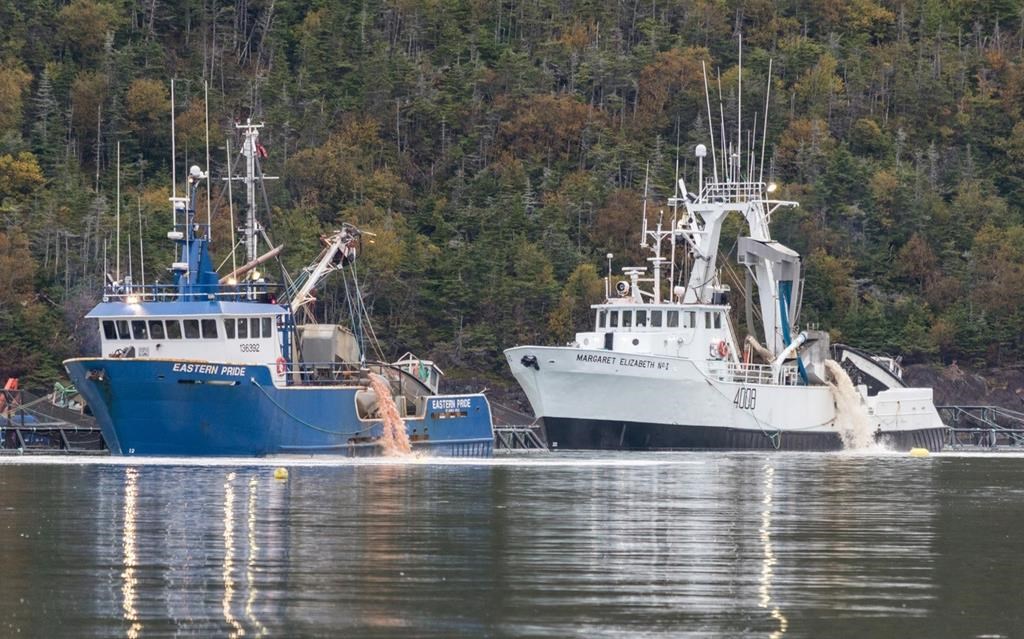A group of fisheries and wildlife advocates were in St. John’s court Wednesday asking for stricter environmental assessment of Newfoundland and Labrador’s expanding aquaculture industry.

The applicants say the province’s former environment minister acted unlawfully when he determined a proposed salmon hatchery project did not require further environmental assessment.
The proposed Indian Head hatchery in Stephenville would see more than 2 million salmon released into existing sea cages owned by Northern Harvest Sea Farms.
James Gunvaldsen Klaassen of the environmental law group Ecojustice argued in provincial Supreme Court that the minister’s decision was invalid because he did not consider what happens after the newly hatched fish are released into the cages.
Challenging what he called a loophole in regulation, Klaassen said an environmental assessment should factor in all activity associated with a project rather than just the new structures being proposed.
“A procedural step has been missed here, and it’s a very important one,” Klaassen said.
READ MORE: Norwegian CEO to meet N.L. minister over disclosure of farmed salmon deaths

Get daily National news
He cited risks that open-net fish farming poses to wild salmon populations, through interbreeding from escapes or spread of disease, saying these risks should have been evaluated.
Klaassen also argued that revisions to the proposed hatchery plan detailing where the smolt, or hatched salmon, would end up were made to avoid an environmental assessment.
Lawyer Suzanne Orsborn, representing the province, said the company was legally entitled to make such revisions.
Orsborn argued that the question that must be considered is whether the minister’s decision was reasonable. She said increasing the number of fish in the sea cages that were already licensed does not necessarily justify an assessment of those facilities.
Orsborn disputed the premise that the two operations – the hatchery and the existing offshore fish farms – are necessarily connected. “It’s not that the two together become one automatically,” she said.
Aquaculture regulation in the province has been hotly debated this fall after 2.6 million salmon died in the same company’s cages off Newfoundland’s south coast.
The CEO of Mowi, which owns Northern Harvest Sea Farms, is expected in the province this week to meet the fisheries minister to discuss disclosure of information about the die-off.
READ MORE: Salmon residue still coating environment around sites of N.L. farmed fish deaths
Sarah McDonald, co-counsel with Klaassen, said in an interview that the case doesn’t consider the most recent die-off because it had not yet occurred when former minister Andrew Parsons released the Indian Head hatchery project from assessment last year.
But she said the event, which occurred in some of the same cages where the Indian Head smolt would end up, speaks to the consequences of environmental reviews that exclude major elements of a proposed project.
“Some of those issues could have been dealt with if a proper environmental assessment had been applied to those sea cages,” McDonald said.
She said her clients are also concerned about the impact on fisheries and tourism if wild stocks are affected or another mass die-off occurs.
Klaassen and McDonald are representing the Salmonid Association of Eastern Newfoundland, the Freshwater-Alexander Bays Ecosystem Corporation, the Port Au Port Bay Fishery Committee, and individuals Alan Pickersgill, John Baird and Wayne Holloway.
The case is scheduled to continue Thursday.
This report by The Canadian Press was first published Nov. 6, 2019.







Comments
Want to discuss? Please read our Commenting Policy first.